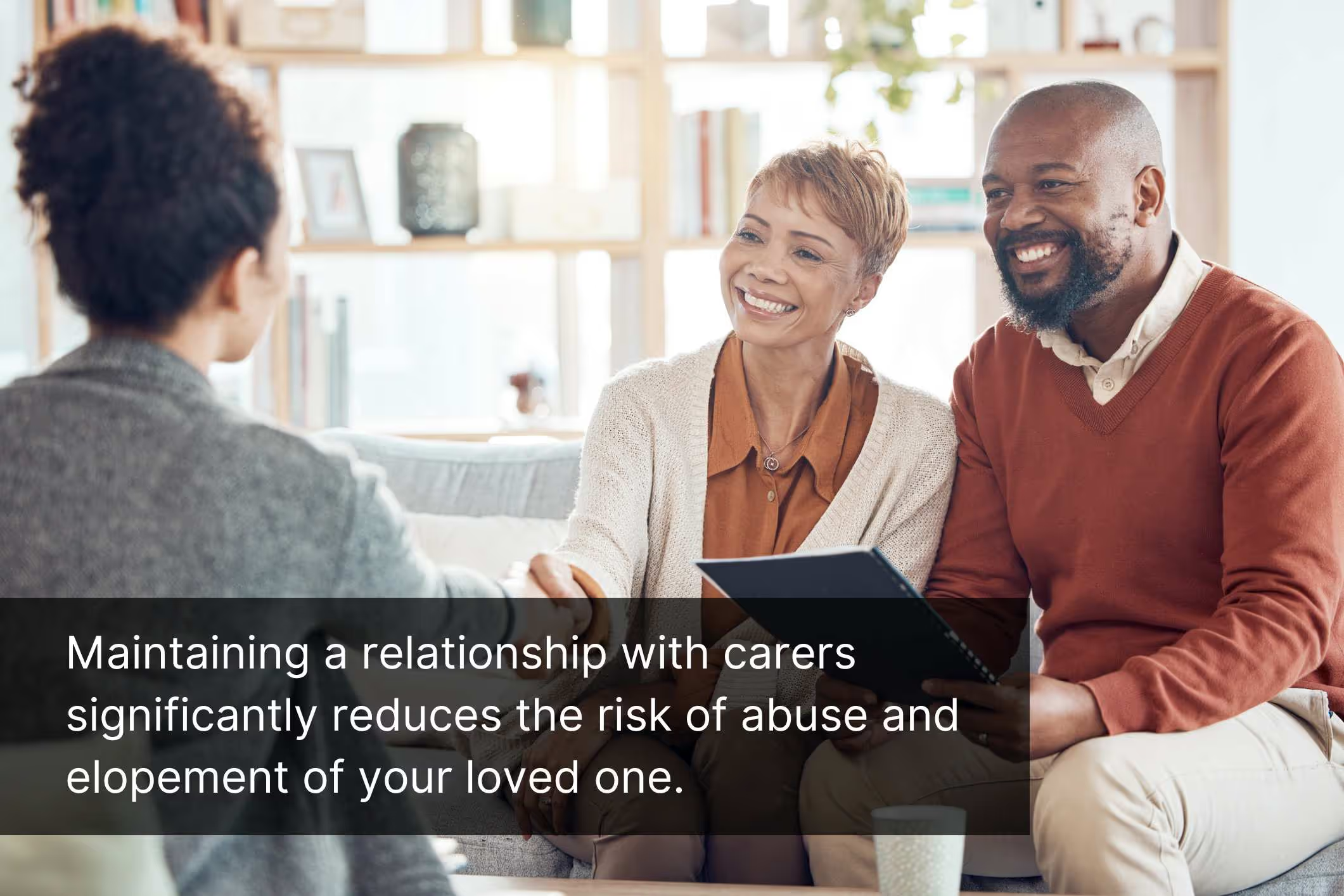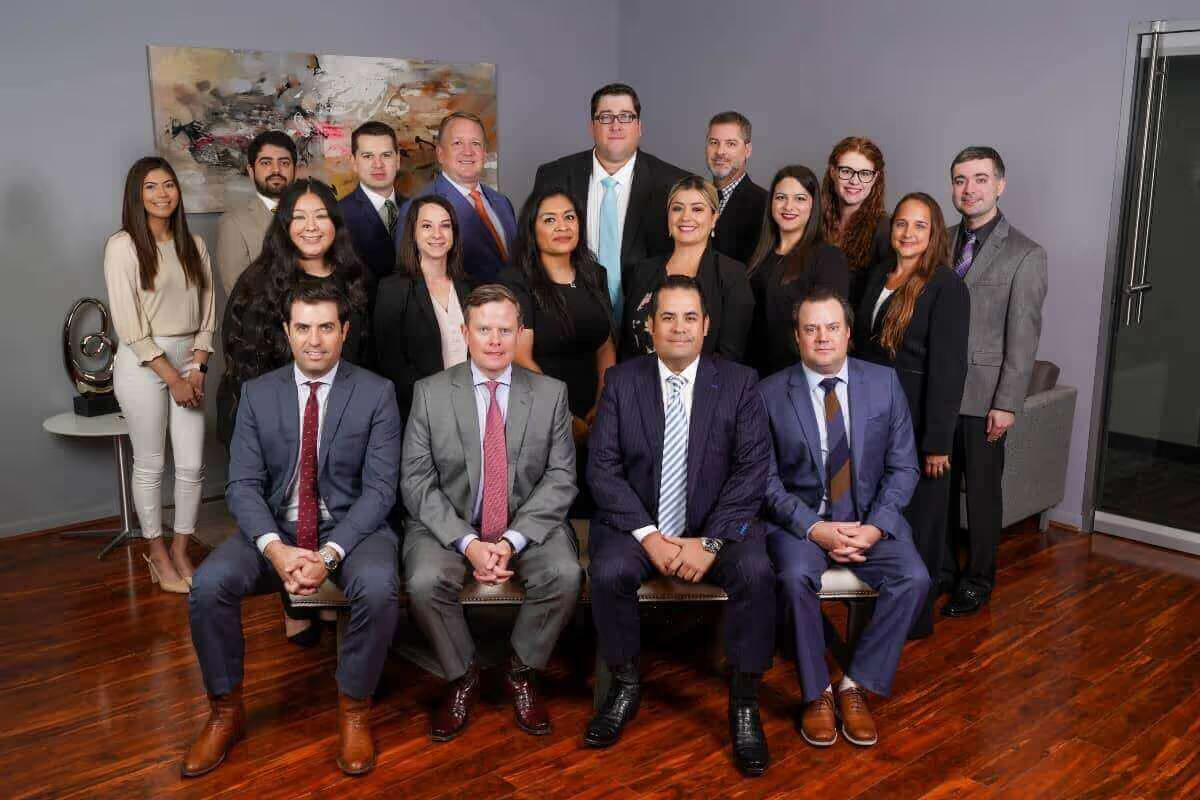What is Elopement in a Nursing Home?
Hiring a lawyer is the first step towards recovering a better quality of life. At Osborne & Francis, we devote our undivided attention to each client, and all communications are held in the strictest privacy. Contact us by filling out the form or calling us directly at (561) 293-2600.
By Pierce | Skrabanek
Published on:
June 28, 2024
Updated on:
July 22, 2025

.avif)
.avif)


What is elopement in a nursing home? It refers to an incident where a resident leaves the facility unsupervised and without staff knowledge. This behavior poses significant safety risks, as the individual is often unaware of their surroundings and unable to protect themselves.
Nursing home environments can inadvertently trigger these behaviors, especially if the surroundings are unfamiliar or stressful.
At Pierce Skrabranek we support victims of personal injury, medical malpractice, elderly abuse, and more. We understand coming forward about abuse isn’t easy. But with over $500 Million in verdicts and settlements recovered, we’re confident we’ll be able to support you in your claim.
You don’t have to tolerate neglect. We’re here to support you every step of the way. Contact us at (832) 690-7000 if you have questions or need immediate legal assistance.
How to Reduce Elopement Risk Through Assessment
Understanding the signs of potential elopement and preparing makes a difference in the long-term health management of your loved one. Regular training sessions and resources from organizations like the Alzheimer’s Association can equip caregivers with the skills and knowledge needed to provide the best end-of-life care.
Assessing Elopement Risk Through Behavioral Observations
Elopement Risk increases with external stress such as an unsafe, or abusive, environment. If your loved one’s behavior seems to have changed, reach out at (832) 690-7000. Our team of compassionate lawyers has extensive experience holding caregivers accountable for abuse, neglect, and distress.
Agitation and Restlessness: Observing these behaviors closely is important, especially if your loved one seems unsettled or anxious.
Previous Incidents: A history of wandering significantly increases the risk of future elopement. Document them.
Assessing Elopement Risk Through the Use of Assessment Tools
A licensed care provider may test for elopement through different clinically-approved assessments.
Cohen-Mansfield Agitation Inventory (CMAI): This tool measures the frequency of agitated behaviors, including wandering. It measures and identifies individuals with high elopement risk.
Wandering Risk Assessment (WRA): This checklist evaluates factors like cognitive status, history of wandering, and environmental triggers, providing a comprehensive risk profile to family & carers.
Functional Assessment Staging Tool (FAST): This tool assesses the stages of cognitive decline, with higher stages indicating a greater risk of wandering and elopement. It helps determine the necessary level of supervision.
Algase Wandering Scale (AWS): Specifically designed for measuring wandering behaviors in individuals with dementia, this scale assesses spatial disorientation and repetitive locomotion.
Preventive Measures to Prevent Elopement Risk
Creating a safe and engaging environment for your loved one reduces the risk of wandering, thus elopement. Establish a consistent daily routine to reduce anxiety and confusion.
Similarly, activities that engage your loved one mentally and physically can help curb restlessness and the urge to wander. For example, supervised outdoor activities in a secure area can provide necessary physical exercise while ensuring safety.
Lastly, solutions like GPS tracking devices offer peace of mind by allowing caregivers to monitor their loved one’s location in real-time. These devices can be worn as bracelets or pendants, making them unobtrusive yet effective in preventing elopement.
What is the Main Risk Factor For Wandering and Elopement?
Any cognitive impairment may put our loved ones at risk of elopement. It’s important to report wandering before severe negligence takes place. Contact us online or by phone at (832) 690-7000 if you suspect any underlying abuse behind elopement.
Many behaviors contribute to wandering and elopement. The most significant factor, however, is cognitive impairment. More than 60% of all people with Alzheimer’s, for example, are prone to elopement. Spotting early signs of cognitive decline reduces injury due to elopement. Causes include:
- Unfamiliarity with One’s Environment
- Unsafe or Inaccessible Housing
- Incorrect/Instantaneous Change in Medicine Dosage
- Complete Social Isolation
- Lack of Support or Supervision
- Abusive or Dysfunctional Home Dynamics
Nursing Home Abuse Contributes to Elopement Risk

Elderly abuse in nursing homes significantly increases the risk of elopement among residents.
According to the National Council on Aging, approximately 10% of older adults experience some form of abuse in nursing homes. And different types of abuse may have lasting effects on an already vulnerable individual.
Once abuse has begun, it often leaves lifelong trauma on the survivors. You can prevent nursing home abuse with our guide here.
How Do I Know If an Elopement is Caused by Nursing Home Abuse?
To file a claim for nursing home abuse, families must prove their loved one's injuries or hardship took place under a carer or facility. Under current federal law, all elder abuse must be reported or facilities risk losing their funding. Most publicly funded carers will investigate claims of abuse to avoid this.
But you should always talk to a lawyer first. Elopement can be considered a side effect of intentional abuse when:
There are Signs of Fear
Physical abuse can lead to fear. This fear can drive elderly individuals to flee the facility for safety. Abused elders are more likely to elope compared to those who are not abused.
It’s important to note the frequency and occurrence of any wandering behavior reported by your chosen care facility as it’s often the first definitive sign of abuse.
Texas, the state with the highest reported nursing home abuse, sees thousands of elopements yearly. Let us help you spot the signs. Contact us online or by phone at (832) 690-7000.
You Notice Increased Emotional Outbursts
Emotional abuse, which includes verbal harassment and threats, exacerbates psychological distress and confusion. Stress and anxiety from such abuse can trigger wandering behaviors as residents attempt to escape the hostile environment.
There’s Bruising or Scarring in Sensitive Areas
Sexual abuse is another severe form of mistreatment that can cause significant trauma. Survivors of sexual abuse may try to flee to avoid further assaults, driven by a desperate need to escape the environment where they were harmed.
Women are more likely to experience sexual abuse in elder care settings. And the likelihood of victimization may compound depending on race, class, and onset of disability upon arrival in care facilities.
Your Loved One Experiences Depression
Mental abuse, involving threats, intimidation, or constant belittling, can erode an elderly person's sense of security and self-worth. This type of abuse can lead to severe psychological distress, increasing the likelihood of elopement as the individual seeks to escape the constant mental torment.
You Notice Negligent Behavior From Staff
Neglect, a common form of abuse, involves failing to meet the basic needs of the elderly, such as food, medical care, and hygiene. Neglected residents might wander off searching for these unmet needs. Neglected elders' wandering increases the risk of elopement.
Above all, it’s important to take photos and document all interactions you suspect of elderly abuse. This will make your claim stronger when, and if, you’re ready to pursue it.

How to Prevent Nursing Home Elopement
What is elopement in a nursing home? Or rather, how can families spot the early signs of negligence that cause elopement? Start by checking for signs of distress. This includes:
- Restlessness and Agitation: Frequent pacing, moving around, or expressing a desire to leave.
- Attempts to Exit: Trying to open doors or windows repeatedly.
- Confusion and Disorientation: Increased levels of confusion, especially during late afternoon or evening, known as sundowning.
Families concerned about potential elopement risks should observe if the care facility has secure locks, door alarms, and other safety devices. The absence of these measures could indicate future negligence.
Make sure to ask staff questions related to their protocols around elopement or wandering. Regardless, supervision must be provided and consistent. Insufficient supervision can contribute to elopement.
Lastly, always ask for, and review, individualized care plans if you know your loved one is at risk of elopement. A proper care plan should include strategies to manage wandering behaviors.
Reporting Nursing Home Negligence & Abuse
If you suspect that a nursing home is contributing to elopement due to negligence or abuse, it's important to take action:
- Document Your Observations: Keep a detailed record of all incidents, including dates, times, and specific behaviors or lack of response from staff.
- Raise Concerns with Management: Report your concerns to the nursing home management. Request a meeting to discuss issues and measures to address them.
- Contact Regulatory Agencies: If the nursing home fails to address your concerns, contact regulatory agencies. Abuse must be reported by facilities, or they risk losing their funding.
- Seek Legal Advice: Consult an attorney specializing in elder care abuse. We offer support for personal injury and free consultations.
Contact Pierce Skrabanek Elder Abuse Attorneys
We handle a wide range of abuse cases, including neglect, physical assault, emotional abuse, and financial exploitation. When you work with Pierce Skrabanek, you work with a compassionate team of lawyers.
We will use our extensive understanding of the law to hold negligent nursing home facilities accountable. But we also recognize the delicate nature of elder abuse and will take measures to protect the safety of potential victims of negligence. Our legal team will thoroughly investigate the circumstances of abuse, gather evidence, and build a compelling case on your loved one’s behalf.
If your loved one has suffered from nursing home abuse, don't hesitate to reach out to us at (832) 690-7000 for a free, confidential consultation.
Let us make sure your loved one is cared for with dignity.




